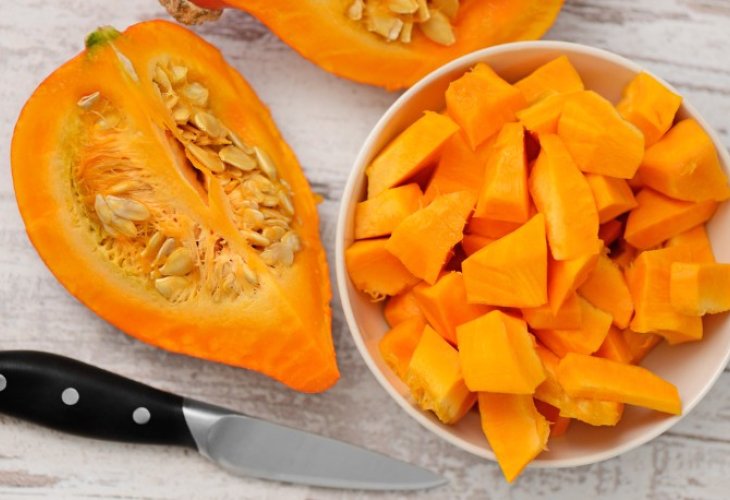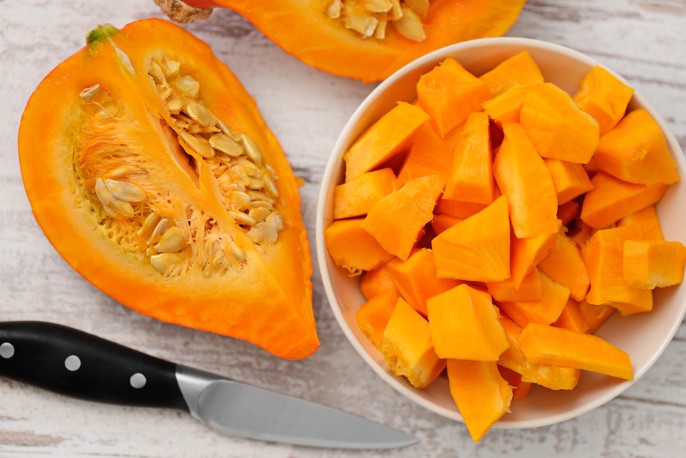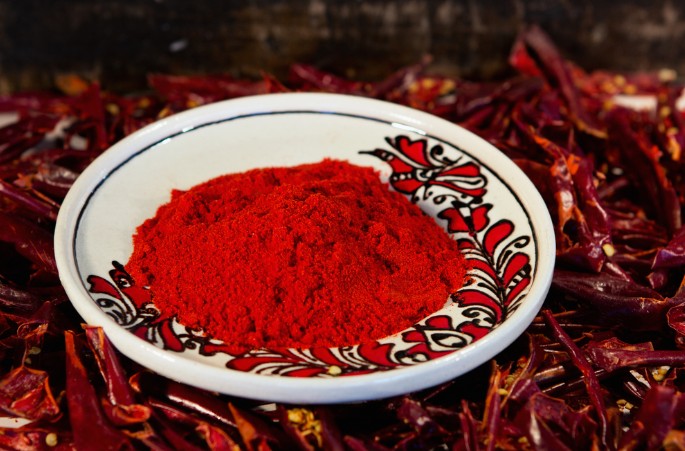Continuing to Pay Attention Even in the Eighth Year: Pumpkins and Paprika
Despite the Sabbatical year having passed, there are still some vegetables that will require kosher supervision and may even be restricted until the end of this year, which is the eighth year. These vegetables, even after Chanukah, which typically lifts the prohibition of aftergrowths, will still be forbidden. Among them are pumpkins and peppers used for paprika production. Here is the full explanation.

Although the Sabbatical year has passed, we are still commanded to remain vigilant and repeatedly review the laws of Shmita, partly because all summer fruits from the previous season and the approaching winter fruits grew during the Sabbatical year, and we hold the principle that any fruit that bloomed during the Sabbatical year is sanctified with the holiness of the seventh year.
However, there are still several types of vegetables that will require kosher supervision, possibly until the end of this year, which is the eighth year – even though they were actually harvested in the eighth year, and we generally hold that any vegetable harvested after Rosh Hashanah of the Sabbatical year is not sanctified with Sabbatical holiness. These vegetables, even after Chanukah, which typically lifts the prohibition of aftergrowths, will still be forbidden. Among them are pumpkins and peppers used for paprika production. Let's explain:
The pumpkin familiar to us is the field pumpkin, a vegetable from the gourd family that grows during the summer months and quickly reaches large dimensions. Growing pumpkins requires abundant irrigation because most of the vegetable consists of fluids, and on the other hand, requires extensive sun exposure. One of the good qualities of pumpkins is their long shelf life, so pumpkins harvested at the edge of the summer months can last until the end of the next summer when stored in containers.
But here's the interesting part: Yes, the pumpkin is harvested from the fields after Rosh Hashanah, but halachically, the pumpkin is considered as if it were harvested before Rosh Hashanah, and as if it grew and was harvested only during the Sabbatical year. This causes the pumpkin to be considered as produce of the Sabbatical year, and if its grower was Jewish, the pumpkin is universally forbidden due to the law of aftergrowths (unless the Heter Mechira arrangement was implemented, for those who rely on this leniency).
All this is because in the growth process, irrigation is stopped well before Rosh Hashanah to create a situation where the pumpkin stops growing, and its connection to the plant roots ceases as the stem connecting the fruit to the plant completely dries up, thereby stopping the drawing of nutrients between the fruit and the plant. Therefore, even though the fruit is still attached to the ground, it is considered as if it was already detached during the Sabbatical year, and the rule that for vegetables we follow the time of harvesting applies, and its harvesting time for this purpose is the Sabbatical year. Consequently, all the laws of aftergrowths apply to the fruit, prohibiting it globally. And since the pumpkin harvested now is kept and stored until the end of the next summer months, and the estimated time it takes for a pumpkin planted in the eighth year to grow until it can be harvested from the fields, which is the time considered "enough time to grow," also falls at the end of the next summer months, there is a prohibition on consuming pumpkins without kosher supervision regarding the Sabbatical year until almost the end of the month of Av next year.

The same issue exists with peppers grown for the paprika industry. In Israel, peppers are grown on a massive scale, and Israeli paprika holds a place of honor in all Western European markets. The only way to gather such enormous quantities is by using a combine harvester that thoroughly shakes the plant, causing the peppers to fall off while the plant remains standing. However, this requires reaching a state where the stem connecting the fruit to the plant is dry, so that a slight shaking will cause the fruit to detach from it. Therefore, toward the end of summer, when the pepper plant begins to dry out, irrigation is stopped to accelerate the drying of the pepper plant. Naturally, they don't rely solely on natural drying, which can take a long time, and add drying accelerators such as various sprays designed to dry only the plant and not the pepper fruit. Often, the spraying is even done with spray planes. Only after the plant has dried and nutrient absorption has ceased does the pepper fruit gradually begin to shrink, like any pepper standing in the sun, and then the harvesting stage arrives.
But even these peppers intended for the paprika industry are considered from a halachic perspective to have been harvested from the moment the stem dried out and the fruit completely stopped drawing nutrients from the ground. If so, last year's pepper crops are considered vegetables harvested in the Sabbatical year, to which all the laws of the seventh year apply. Therefore, paprika produced this year also requires Sabbatical kosher supervision until the end of next summer.
In conclusion, there are many reasons to consume fruits and vegetables from stores or distributors that are supervised with mehadrin kosher certification throughout the rest of the year, even if we are careful to separate all tithes and offerings in our homes again out of doubt, all this without addressing the issue of Shabbat harvesting, which is obviously a separate topic in itself.


